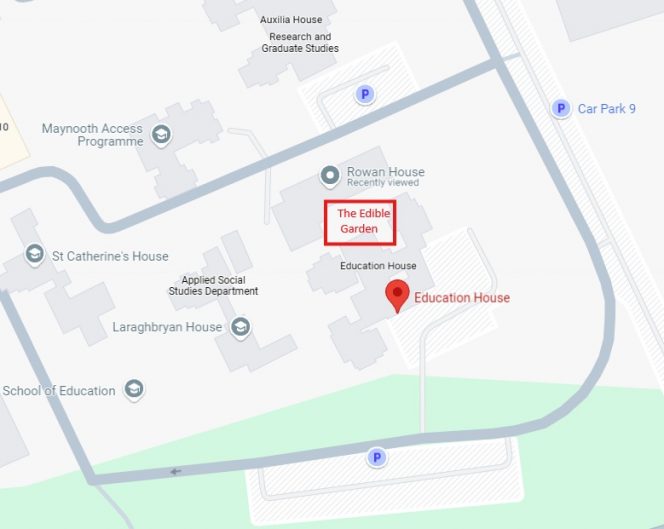Sustainable Food and Agriculture
Sustainable Agriculture is all about cultivating healthy foods in a sustainable way without compromising environmental ecosystems. In practice, the principles of sustainable agriculture ensure that the space in the biosphere for other species and the equilibrium of the soil is maintained so that plants are nourished organically, can resist disease, and produce wholesome, health-giving foods. Whilst human societies have over time, brought under control a large proportion of the earth’s resources for the purposes of food production, we remain subject to the effective functioning of global ecosystems and the global food economy. The global food economy plays a role within the epochal environmental crises of biodiversity loss, climate change and food insecurity. Through the globalisation of food and industrialisation of agriculture, our engagement with food production has become increasingly marginalized, disconnecting individuals from the land, knowledge and practice, and the social relations inherent in the production, and distribution of food. By contrast, food sovereignty prioritises small-scale, and sustainable and regenerative food production to the benefit of communities and their environments. In seeking a more resilient future, growing food using sustainable principles (on small plots, allotments, balcony’s, community gardens) offers important multi-functional synergies for reconnecting people with the land, knowledge systems, practice and others, whilst serving to provide ecological endowments that can enhance biodiversity and build solidarity in defence of food insecurity.
Agriculture and Maynooth Campus
St. Patricks’ College Maynooth has a long tradition of small-scale food production. For over a quarter century, two farms in St. Patricks College, (‘Killick’, and the ‘College’ or ‘Home’ farm) along with a small Orchard provided the college kitchens with a wide array of seasonal fruit and vegetables, opportunities for clerical students to cultivate the land, whilst providing healthy incomes for families of the area. With the subsequent sale of ‘Killick’ to help fund the development of the John Paul II library in the early 1980s, and declining numbers in St. Patricks College, the need for a farm and vegetable cultivation on campus waned.
In recent years however, scholarship in MU has illuminated the significance and potential of localised food production systems for enhancing biodiversity and offering important multi-functional synergies; for reconnecting individuals with the land, knowledge and practice through cultivation of healthy foods in a sustainable way (Kettle, 2015, 2016, 2019). International research also shows that there will need to be a 60% increase in global food production and associated ecosystem services by 2050 and that one third of global soils are currently facing moderate to severe degradation through soil erosion, nutrient depletion, salinity, sealing and contamination. Evidence-based decisions and soil information are therefore crucial for achieving sustainable soil management at all levels (Rojas et al, 2016) for food security, and by extension healthy populations.
To address these concerns, a new MU’s Green Campus ‘Sustainable Food and Agriculture Working Group (WG)’ has come into fruition, with a view to developing an ‘Edible Garden’ on campus the objective of which is to provide opportunities for staff, students and the wider community of Maynooth to foster sustainable relationships with food and the land, and enhance the exchange of knowledge of the significant role ecologically sustainable food production plays within the current (and epochal) environmental crises of biodiversity loss, climate change and food insecurity.
To foster sustainable practices, the working group also sought to provide a focus on changing the attitudes and behaviour of staff and students with regard food production and consumption, knowledge, and practice. Working on the principle that "well-functioning public spaces rely on the involvement of people in the creation of that space" (Kettle, 2015) the Edible Garden provides an interdisciplinary platform or ‘biodiversity hotspot’ where staff, students and the wider community of Maynooth (through Community-Engaged Learning) can join in concert and cultivate food, foster sustainable relationships with the land, and interest in (and by extension, become active participants) in authentic real-world issues relating to sustainability, food insecurity, the environment and bio-diversity through holistic and sustainable garden-based practices and related projects.
By aligning projects with UN Sustainable Development Goals (SDGs) and Community Engaged Learning, the Garden provides significant scope for the exchange of ideas and skills, knowledge of and opportunities to increase awareness of the ‘Circular Economy’ (redefining growth by focusing on positive society-wide benefits), aligning scientific standards and practices with pedagogy, and local social relations through garden-integrated scientific learning activities. In addition to the ecological benefits of practices of cultivation, the WG aims to engender specific ancillary social and civic dividends by creating a ‘shared-in-common space’ by aligning practices to Maynooth University Green Campus, Strategy, UN Sustainable Development Goals, and the National Sustainable Development Strategy.

